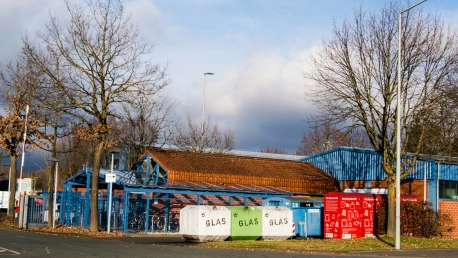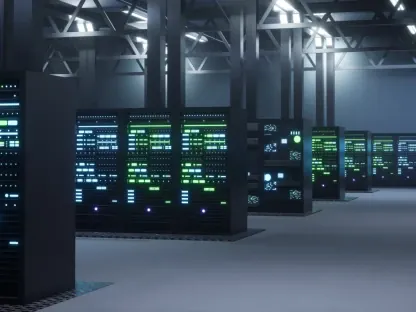Northeast Michigan is witnessing a rural recycling revolution, spearheaded by the Northeast Michigan Council of Governments (NEMCOG), covering eight counties previously lacking robust recycling systems. This geographical and demographic challenge meant that recycling infrastructure was often insufficient or nonexistent. However, with determination, strategic partnerships, funding, and legislative backing, NEMCOG is now fostering sustainable waste management practices. This vital shift is gradually transforming the region’s approach to recycling, marking the dawn of a new era of environmental stewardship amid the area’s lush forests. As this initiative takes root, NEMCOG’s vision for a greener future is slowly but surely becoming a reality, setting an example for rural regions everywhere.
Initiating Comprehensive Recycling Outreach
The drive for recycling innovation began with NEMCOG’s recognition of the region’s stark inequalities in waste management resources. Intertwining resolve with strategy, the council seized the promising opportunities provided by NextCycle Michigan’s I2P3 Accelerator Track—a collaboration drenched in technical, financial, and advisory support. Boosted by this encompassing assistance, NEMCOG’s plan shifted from blueprint to action, reflecting the importance of coalition-building in manifesting a workable recycling framework. This newfound momentum not only promised to bridge gaps in recycling capabilities but also foster a sweeping cultural shift in the conservation narrative of Northeast Michigan.The catalyst for change thrived on NEMCOG engaging with a multitude of stakeholders, ranging from concerned citizens to invested business entities. This afforded a rare convergence of insight and capability, enabling the council to chart a new course for a region historically lagging in environmental infrastructural development. Underscored by an ethos of inclusivity and driven by the region’s diverse needs, this multifaceted alliance served as the birthplace for pivotal projects that would wholly redefine recycling in this bucolic part of Michigan.
Building the Materials Recovery Facility in Alpena
NEMCOG’s vision for a greener future is taking shape through a proposed materials recovery facility (MRF) planned for Alpena County. This facility is expected to serve as a central point for recycling, boosting environmental conservation efforts by efficiently sorting and collecting recyclable materials from surrounding areas. In addition to ecological gains, the project aims to spur economic growth and job creation locally. Alpena County’s dedication to this initiative is evident in their commitment of resources and funding. The financial foundation for the MRF has garnered support from various organizations, like the Carton Council and Closed Loop Partners, reflecting a united front in advancing rural recycling. This project marks a significant stride in regional sustainability and collaborative investment.
Embracing Legislative Changes to Foster Recycling
Amid these focused efforts, a significant legislative evolution was underway, propelling Michigan toward a more comprehensive recycling framework. The enactment of “Part 115” denoted a series of bills that reimagined the state’s approach to waste management, compelling counties to craft Sustainable Materials Management Plans. No longer were dated Solid Waste Management Plans the norm; instead, a futuristic and environmentally attuned approach was mandated.Committed to nurturing this legislative impetus, the Michigan Department of Environment, Great Lakes, and Energy (EGLE) delivered crucial support in the form of grants, enabling counties to explore and implement these advanced strategies. Armed with financial resources and new knowledge, county officials were better positioned to engage with the intricate nuances of contemporary recycling progress. This paradigm shift in policy and practice set the stage for a greener, more sustainable Michigan.
Establishing Northeast Michigan Materials Management Authority
From the germinating efforts of NEMCOG and its partners unfolded the Northeast Michigan Materials Management Authority (NMMMA), a collective destined to marshal the region’s recycling ambitions. Merging the forces of Alpena County, the City of Alpena, and peripheral townships, this alliance demonstrated a powerful regional response to waste management challenges. With the NMMMA at the helm, the envisioned MRF took on greater substance, becoming an achievable hallmark of a shared regional commitment to environmental responsibility.Bolstered by a technical assistance grant, the NMMMA set to work in earnest, strategizing the operationalization of the MRF and the broader structural recycling regime it would uphold. This fresh collaborative was more than just an administrative construct; it embodied the hopes and sustainability goals of an entire region. The Authority’s proactive governance model exemplified the transformative power of uniting local governments in pursuit of a common eco-conscious objective.
Crawford County Joins the Recycling Innovation Trail
Recycling initiatives are thriving beyond NEMCOG’s early endeavors, as nearby Crawford County also gets on board with the NextCycle Michigan Accelerator program, bolstered by a materials management planning grant. This reflects the growing popularity of sustainable practices in the area. Crawford County is aiming for an integrated recycling framework to enhance accessibility and efficiency, breaking through municipal lines.Rural Northeast Michigan is experiencing a green awakening, fostering the belief that dependable recycling services are a right for all. Through strategic investments and policy, these traditionally neglected locales are adopting a more sustainable and unified waste management system. Such efforts show the region’s strong commitment to environmental care and the well-being of its communities, marking a significant shift towards a greener future.









